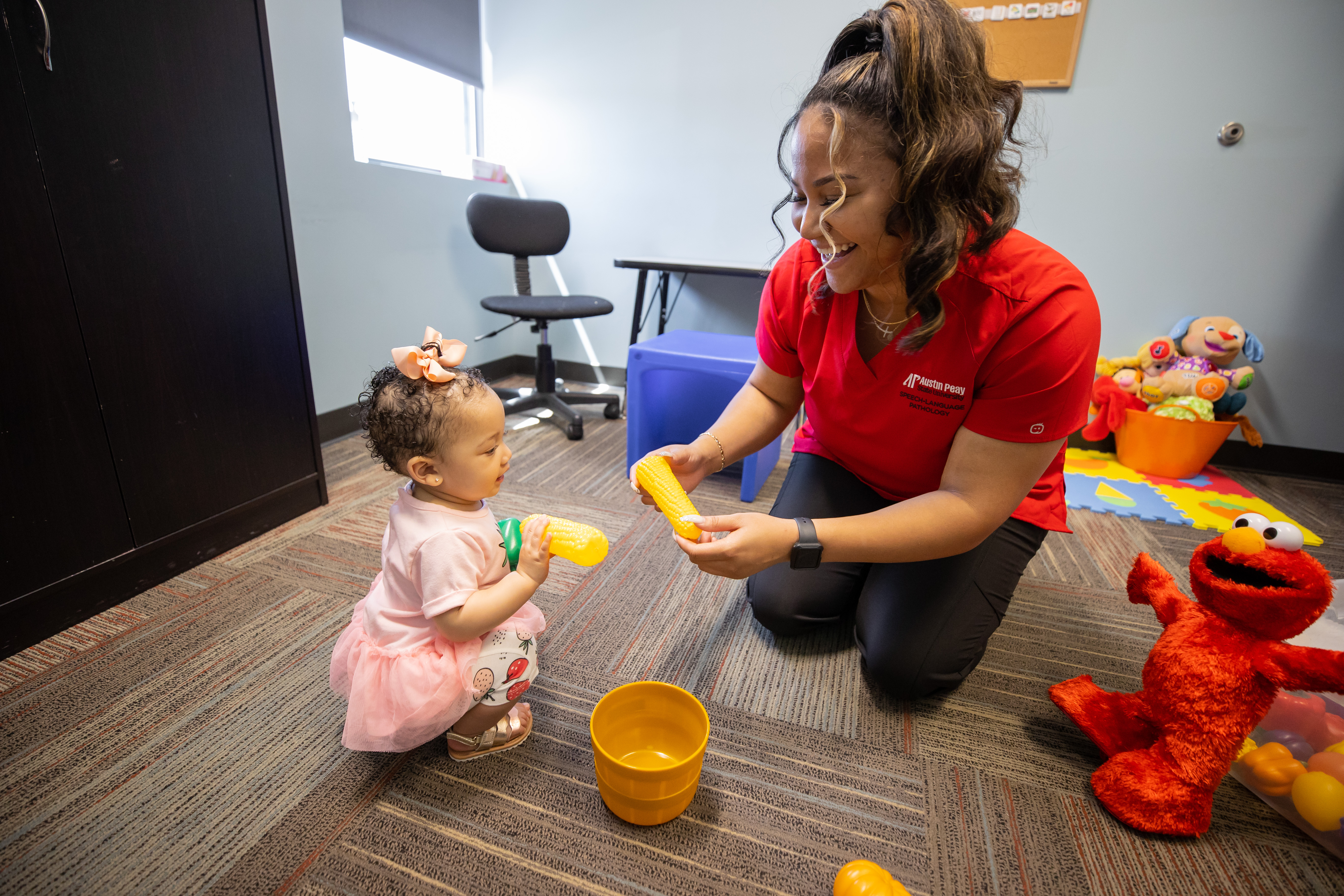What to Know Before Booking a Speech Pathologist Appointment
What to Know Before Booking a Speech Pathologist Appointment
Blog Article
How a Speech Pathologist Can Help Improve Interaction Skills
Efficient interaction is a keystone of individual and professional success, yet lots of individuals face challenges that impede their capability to express themselves plainly. A speech pathologist is furnished to attend to these obstacles with targeted assessment and treatment methods customized to every person's demands. By employing evidence-based therapeutic strategies, they not only function to improve speech and language problems however also enhance overall communicative proficiency. Recognizing the complex duty of a speech pathologist discloses exactly how their experience can change lives, inviting a better examination of the particular methods and end results connected with their technique.
Comprehending Communication Conditions
Recognizing communication conditions is important for identifying exactly how they affect people' ability to reveal themselves and involve with others. Interaction conditions include a variety of problems that influence speech, language, and social communication, frequently impeding efficient interaction. These conditions can occur from different aspects, consisting of neurological problems, developmental delays, physical impairments, or emotional problems.
Speech problems may materialize as difficulties in voice, articulation, or fluency production, affecting how words are obvious or talked. Language disorders, on the various other hand, include difficulties in understanding or utilizing language, which can restrain both non-verbal and spoken communication. Social interaction disorders are characterized by troubles in the pragmatic aspects of interaction, such as taking turns in conversation or understanding social hints.
The effects of communication conditions are profound, influencing not just the individual's ability to share emotions and ideas but likewise their social connections, instructional chances, and general lifestyle. Recognition of these problems can foster compassion and assistance, urging reliable techniques for communication and engagement. Understanding the complexities of interaction conditions is an important step towards advertising inclusivity and addressing the demands of those influenced.
Role of a Speech Pathologist
Speech pathologists regularly play a crucial function in treating and diagnosing communication conditions, using a variety of evidence-based techniques customized to each person's needs. These experts deal with individuals across the lifespan, from children with speech hold-ups to adults recouping from strokes or distressing mind injuries. Their proficiency includes a variety of interaction concerns, including expression, language, voice, and fluency conditions.
In healing settings, speech pathologists make use of structured interventions designed to boost interaction skills. They might implement techniques such as speech workouts, language video games, and social interaction training to promote enhancements in receptive and expressive language capabilities. Speech Pathologist. Additionally, they enlighten customers and their family members about effective interaction methods and adaptive methods to navigate daily communications
Beyond straight therapy, speech pathologists team up with other healthcare professionals, educators, and caretakers to make sure an extensive strategy to treatment. They support for clients by offering resources and support, enabling individuals to attain their interaction objectives and enhance their overall top quality of life. As experts in the area, speech pathologists are important in promoting effective interaction, promoting freedom, and enhancing social involvement for those with communication challenges.
Assessment and Medical Diagnosis Refine
The assessment and diagnosis procedure carried out by speech pathologists generally entails an extensive examination to determine interaction disorders precisely. This process begins with a comprehensive medical history, where the clinician collects significant info regarding the person's medical, educational, and developing background. Recognizing the context of the individual's interaction problems is important for a precise medical diagnosis.
Adhering to the medical history, speech pathologists use informal assessments and standardized tests to assess numerous aspects of communication, consisting of speech sound production, language comprehension, expressive language, and social interaction abilities. These evaluations are tailored to the individual's age and details concerns, providing useful data for evaluation.
Monitoring is also an important part of the analysis process, as it allows the clinician to see direct how the individual communicates in natural setups. Additionally, meetings with household participants and educators can offer insight right into the person's communication obstacles across various atmospheres.
When the evaluation is total, the speech pathologist synthesizes the findings to establish a diagnosis and recommend ideal interventions. This extensive analysis procedure makes sure that people get targeted support tailored to their distinct interaction needs, laying the foundation for efficient healing methods.
Restorative Strategies and Techniques
Various therapeutic methods and techniques are employed by speech pathologists to resolve a selection of communication disorders efficiently. One commonly used technique is articulation therapy, which focuses on fixing speech appears with repeating and aesthetic cues. This technique is particularly advantageous for individuals with Visit Your URL speech audio problems.
One more effective method is language treatment, which boosts both responsive and meaningful language abilities. This may involve interactive tasks that promote vocabulary development, syntax understanding, and conversational abilities. Furthermore, speech pathologists usually make use of social skills educating to improve practical language capabilities, enabling individuals to navigate social communications much more successfully.
Fluency shaping and stuttering modification strategies are particularly created to help those experiencing fluency conditions. These strategies aid clients develop smoother speech patterns and handle the psychological and physical parts of stuttering.
Furthermore, alternative and augmentative communication (AAC) systems are used for individuals with serious interaction impairments. These systems, which can include gestures, symbols, or electronic tools, supply important support for effective communication.
Benefits of Speech Treatment

In addition, speech treatment can assist in developing crucial listening and understanding abilities, cultivating better communication in conversations. Individuals with cognitive-communication problems can additionally profit, as therapy concentrates on strengthening memory and analytic capabilities, crucial for effective interaction.
Another crucial element is the psychological support given throughout therapy sessions. Speech pathologists develop a safe environment, encouraging patients to conquer stress and anxiety and irritation related to their interaction problems. This assistance can lead to boosted self-esteem and overall mental health.
Moreover, very early treatment with speech treatment can avoid further difficulties, making certain that individuals reach their complete communicative potential. Generally, the advantages of speech therapy extend past plain speech improvement, favorably impacting different measurements of life for those influenced by communication difficulties.
Verdict
In recap, speech pathologists play a critical duty in dealing with interaction problems through evaluation, diagnosis, and tailored restorative interventions. By utilizing evidence-based strategies, these experts enhance individuals' speech and language capabilities, cultivating improved quality, fluency, and social interaction skills. The benefits of very early intervention highlight the importance of looking for support from speech pathologists, as their know-how can considerably boost communicative capacity, inevitably resulting in better success in both personal and specialist rounds.

Speech pathologists regularly play Go Here a crucial duty in treating and identifying interaction conditions, utilizing a variety of evidence-based techniques tailored to Going Here each individual's demands. As professionals in the area, speech pathologists are crucial in cultivating effective interaction, advertising independence, and improving social involvement for those with communication obstacles.

Report this page